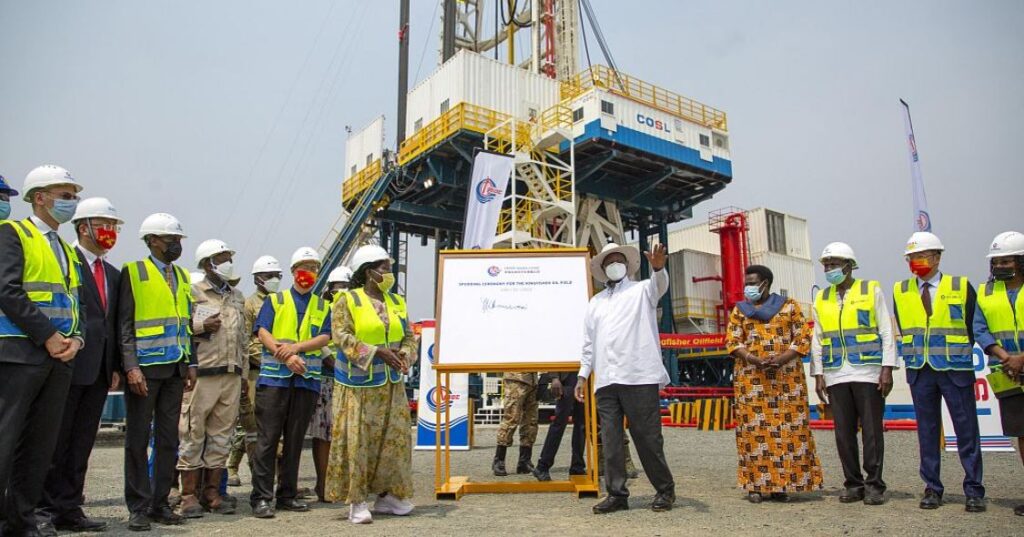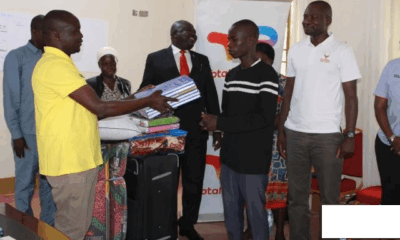Oil and Gas
Experts Warn of Uganda’s Stalled Revenue Growth as Oil Prospects Raise Fresh Concerns
Tax experts and civil society organisations have raised alarm over Uganda’s failure to significantly grow its domestic revenue mobilisation levels, despite years of government reform efforts and the looming decline in external assistance.
Uganda’s domestic revenue-to-GDP ratio has stagnated at around 13 per cent for several years, well below the Sub-Saharan African average of 16–18 per cent. This shortfall continues to force the country into expensive borrowing to fund budgetary needs, a cycle experts warn is eroding service delivery and slowing national transformation.
Hilda Tumuhe, Program Officer for Debt and Aid at SEATINI-Uganda, said Uganda’s Domestic Revenue Mobilisation Strategy set a target of raising revenues by at least 0.5 per cent of GDP annually, but recent growth has averaged only 0.1–0.3 per cent.
“This persistent underperformance limits the country’s ability to finance its own development. Policies such as tax exemptions, which are rarely justified by tangible results like job creation, continue to erode the tax base,” Tumuhe said at a dialogue on domestic revenue mobilisation in Kampala.
A recent review revealed that 22 out of 36 companies receiving tax incentives failed to meet even half of their promised employment targets, exposing weak accountability in investment promotion. Tumuhe also cited limited transparency on how tax revenues are spent, poor public service quality, and delayed remittances to local governments as key factors undermining taxpayers’ trust.
Uganda’s vast informal economy—estimated at 51 per cent of total GDP—remains largely untaxed. While agriculture contributes 24 per cent of GDP, its share of tax revenues is less than 2 per cent. Flavia Kabahenda, the Woman MP for Kyegegwa district, urged the government to design policies that bring informal businesses into the tax net.
“Everyone should contribute their fair share. Without engaging the informal sector, Uganda will continue struggling with a narrow tax base,” Kabahenda said.
The debate comes as Uganda prepares to start receiving oil revenues in 2027, projected at about $2.5 billion (close to UGX 9 trillion) annually. The government has pledged to use the funds primarily for infrastructure development, with hopes that these investments will spur long-term growth.
However, concerns remain over whether these commitments will be honoured. Siraje Magara Luyima, Extractives Coordinator at Oxfam Uganda, warned that the policy framework lacks clarity on which infrastructure projects will be prioritised and who will benefit.
“Local governments where oil resources are located are entitled to six per cent of royalties, but their capacity to plan and manage such revenues is deeply questionable. Without proper planning, these revenues risk being squandered,” Magara said.
He also highlighted revenue leakages from generous tax incentives in projects like the East African Crude Oil Pipeline (EACOP). With its domicile in the UK, the project could exploit double taxation treaties in addition to a 10-year tax holiday, significantly shrinking Uganda’s expected earnings.
David Walakira, Senior Financial Analyst at the Local Government Finance Commission, echoed Magara’s fears. He said local governments often return unspent funds to the Ministry of Finance due to poor planning.
“When this happens, the central government may be tempted to use such funds for short-term needs instead of long-term development priorities. We need robust revenue mapping and expenditure planning well before the fiscal year begins,” Walakira stressed.
SEATINI Uganda’s Executive Director, Jane Nalunga, called for equitable and inclusive mobilisation strategies to avoid deepening inequalities.
“Uganda has opportunities in oil, critical minerals, and clean energy, but without strong governance safeguards, these resources could push us deeper into debt rather than lifting us out,” she said.
As Uganda inches closer to the oil era, experts argue that unless loopholes in the tax system are closed, informal businesses are brought into the fold, and governance strengthened, the promise of transformative domestic revenue growth could remain elusive.
Comments



























